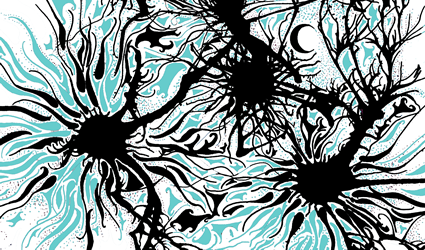

We use language to (try to) impose order on the world and give meaning to our experience of it; at the same time language imposes an order on our experience of the world. Either way, we are removed from our experience, which can never be adequately rendered in language. Paradoxically, then, our efforts to make sense of the world through language leave the world less intelligible to us. (Yagelski, 2011, p. 91)
Excess
In chapter 3, “Writing, Being, and Nonduality,” Robert Yagelski (2011) explored the connections among language, experience, and being to examine the limitations of text for truth-seeking. For Yagelski, meaning/experience exists outside of language; however, we rely on language as if it communicates the truth. Barbara Couture (1998) articulated the problem of relying on language when she said, “we are trying to use language as if it can be truthful while believing it cannot be” (p. 8). He also critiqued Jacques Derrida’s analysis of language and being because he claimed Derrida reinforced the separation between the self and the world. Yagelski (2011) seems to have suggested that for Derrida, bodies simply become passive recipients to textuality. Yagelski moved beyond the view that meaning is constructed through language; in fact, experience exceeds and even precedes language. In short, he argued against the postmodern notion that language is the locus of meaning.
Moving from his critique of Derrida, Yagelski (2011) explained that many alternatives to Cartesian thinking exist whereby Cartesian distinctions collapse. Turning to the work of thirteenth-century Zen philosopher Eihei Dogen, along with Crispin Sartwell and phenomenologist Barbara Couture, for instance, Yagelski (2011) exposed the limitations of language as well as thinking about writing as a conduit of meaning-making. Dogen challenged the notion that language and thought are the exclusive ways to understanding meaning because, as Yagelski explains Dogen's position, “truth is extra linguistic” (p. 85). Sartwell (2000) echoed Dogen’s notion of limitations of language when he said “some things (most things) always stand in excess to language; that is language can never capture the totality of our experience or even partially render it in a way that is adequate” (p. 5). In other words, lived experience exceeds language and cannot be represented in a text. Yagelski (2011) suggested that if the text is unable to fully represent experience, then compositionists would do well to focus on the “act of writing rather than just focusing on the production of text” (p. 7).
Each time I re-read this highly theoretical chapter, I thought about the literacy narrative assignment that I assigned to my composition students in past semesters. In a sense, the literacy narrative became a type of textual straightjacket insofar as I prompted students to force their lived experienced into a unified, coherent, and petit narrative that pushed against excess. I realized that my use of multimodality simply furthered the violence of limiting excess by having students compose their experiences in narratives. Furthermore, I realized that even I, the reader was not changed. Yagelski’s text prompted me to see how the assignment was simply an example of mainstream writing pedagogy cloaked in multimodality. If we shift focus from the produced text to the experience of writing, writing and reading can have transformative effects on being.